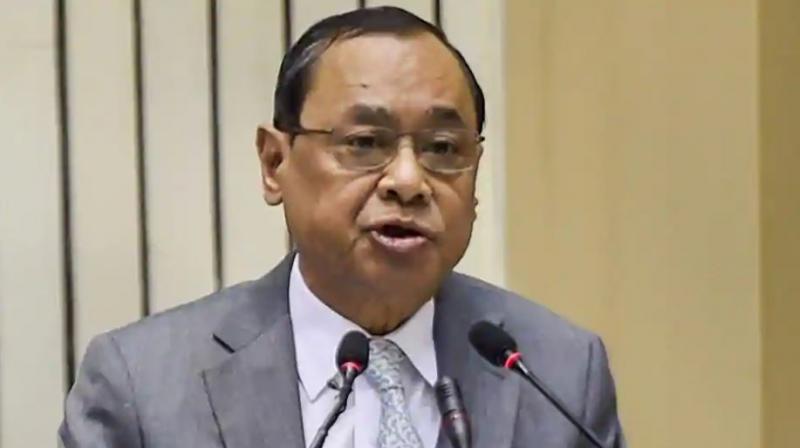Justice must be seen to be done

Justice must not only be done, but also be seen to be done. No one knows this better than the Chief Justice of India. But at first sight, he doesn’t seem to have acted in a way that would convince anyone that he had instituted the right measures to handle the sexual harassment complaint against him. Far from handing over the sensitive matter to the Gender Sensitisation and Internal Complaints Committee of the Supreme Court, which is empowered to deal with “any complaint in the Supreme Court precincts”, the CJI presided over a bench assembled in extraordinary circumstances to hear suo motu into the online publication of sexual harassment allegations levelled against him by a former court employee. He sat on the bench and spoke about the matter before withdrawing to leave the judicial matter of passing any order to his two junior colleagues. It came as no surprise that his colleagues didn't wish to pass any order.
We want to believe this is a frivolous complaint, as made out in what the CJI said. It would ill behove a nation if one of its most powerful men, the highest judicial authority, were not to be, like Caesar’s wife, above suspicion. Whatever the merits of the claim of harassment in his own house, where the assistant was posted, the CJI straightaway breached one cardinal legal principle: you can’t be a judge in your own cause. His participation in the proceedings betrays the fact that justice is, prima facie, not seen to be done. There is no reason to disbelieve the CJI’s later comments on a possibly motivated complaint aimed at destabilising the judiciary. But it would have been better if he had recused himself, and allowed his junior colleagues to handle it as they would any other case.
The timing of the complaint is worrisome, suspicious even. The CJI’s benches will be taking up very crucial cases, like Rahul Gandhi’s take on the court’s remarks on Rafale review hearing, and the Tamil Nadu cash-for-votes at poll time. The credibility of the nation’s highest court was already under fire after a group of judges, including the present CJI, held a press conference last year alluding to deficiencies in apportioning work. Its image had not only to be restored but also constantly upheld every given day. In this case of finger-pointing at the highest judge in the land, the right to justice of the woman complainant, her fundamental rights and her right to life and to live with dignity must be seen to be tended to, however weak her case may be. The matter hasn’t ended yet, and there is sufficient time for the CJI and the Supreme Court to establish that it will act without fear or favour even though the highest of them has unfortunately been accused of inappropriate sexual behaviour.

